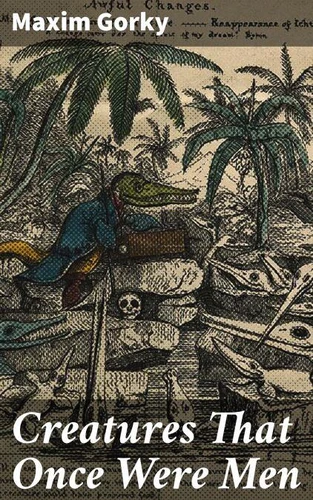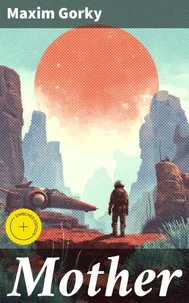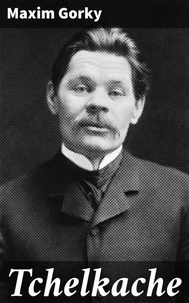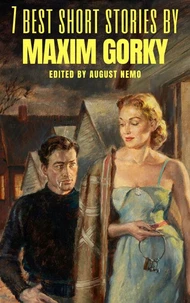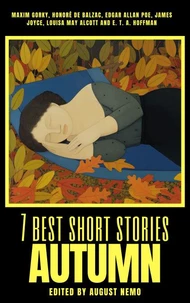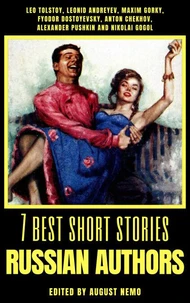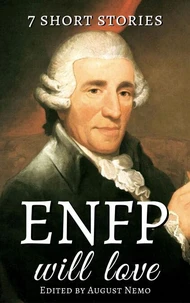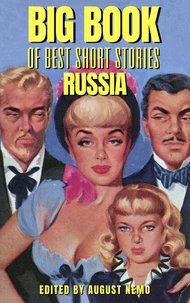Creatures That Once Were Men. A Gritty Tale of Dehumanization and Exploitation in Pre - Revolutionary Russia
Par :Formats :
Disponible dans votre compte client Decitre ou Furet du Nord dès validation de votre commande. Le format ePub est :
- Compatible avec une lecture sur My Vivlio (smartphone, tablette, ordinateur)
- Compatible avec une lecture sur liseuses Vivlio
- Pour les liseuses autres que Vivlio, vous devez utiliser le logiciel Adobe Digital Edition. Non compatible avec la lecture sur les liseuses Kindle, Remarkable et Sony
 , qui est-ce ?
, qui est-ce ?Notre partenaire de plateforme de lecture numérique où vous retrouverez l'ensemble de vos ebooks gratuitement
Pour en savoir plus sur nos ebooks, consultez notre aide en ligne ici
- Nombre de pages63
- FormatePub
- ISBN406-4-06-631673-0
- EAN4064066316730
- Date de parution10/04/2021
- Protection num.Digital Watermarking
- Taille719 Ko
- Infos supplémentairesepub
- ÉditeurGOOD PRESS
Résumé
In Maxim Gorky's 'Creatures That Once Were Men', readers are immersed in the harsh realities of pre-revolutionary Russian society through the eyes of downtrodden characters struggling to survive in a world plagued by poverty and inequality. Gorky's vivid and gritty portrayal of urban life is captured in a stark and unromantic style, reflective of the naturalist movement in literature at the time. The novella delves into themes of dehumanization, exploitation, and the loss of individual identity in a society driven by greed and class divisions.
Through its social commentary and unsentimental prose, 'Creatures That Once Were Men' offers a powerful critique of the dehumanizing effects of industrial capitalism. Maxim Gorky, a prominent Russian writer known for his depictions of working-class life, drew inspiration from his own impoverished upbringing and experiences, fueling his commitment to expose the harsh realities faced by the lower classes in society.
His keen observations and empathetic approach make 'Creatures That Once Were Men' a poignant and thought-provoking read for those interested in social realism and the human condition.
Through its social commentary and unsentimental prose, 'Creatures That Once Were Men' offers a powerful critique of the dehumanizing effects of industrial capitalism. Maxim Gorky, a prominent Russian writer known for his depictions of working-class life, drew inspiration from his own impoverished upbringing and experiences, fueling his commitment to expose the harsh realities faced by the lower classes in society.
His keen observations and empathetic approach make 'Creatures That Once Were Men' a poignant and thought-provoking read for those interested in social realism and the human condition.
In Maxim Gorky's 'Creatures That Once Were Men', readers are immersed in the harsh realities of pre-revolutionary Russian society through the eyes of downtrodden characters struggling to survive in a world plagued by poverty and inequality. Gorky's vivid and gritty portrayal of urban life is captured in a stark and unromantic style, reflective of the naturalist movement in literature at the time. The novella delves into themes of dehumanization, exploitation, and the loss of individual identity in a society driven by greed and class divisions.
Through its social commentary and unsentimental prose, 'Creatures That Once Were Men' offers a powerful critique of the dehumanizing effects of industrial capitalism. Maxim Gorky, a prominent Russian writer known for his depictions of working-class life, drew inspiration from his own impoverished upbringing and experiences, fueling his commitment to expose the harsh realities faced by the lower classes in society.
His keen observations and empathetic approach make 'Creatures That Once Were Men' a poignant and thought-provoking read for those interested in social realism and the human condition.
Through its social commentary and unsentimental prose, 'Creatures That Once Were Men' offers a powerful critique of the dehumanizing effects of industrial capitalism. Maxim Gorky, a prominent Russian writer known for his depictions of working-class life, drew inspiration from his own impoverished upbringing and experiences, fueling his commitment to expose the harsh realities faced by the lower classes in society.
His keen observations and empathetic approach make 'Creatures That Once Were Men' a poignant and thought-provoking read for those interested in social realism and the human condition.

